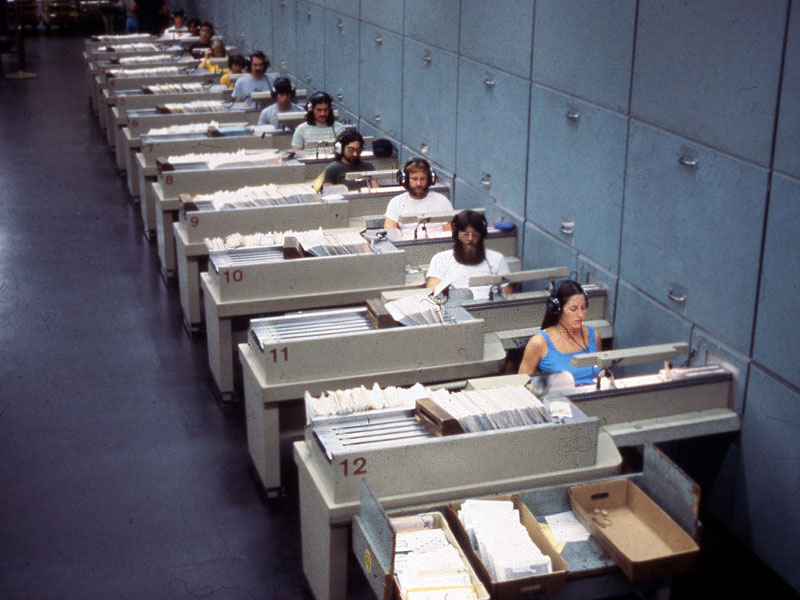The dream of the automated workplace, shared by 1930s European Fascists and technologists in postwar America, is not only aimed at blue collars but white ones also, the secretaries under siege but bosses as well. In hs Aeon essay, “RoboCorp,” Daniel C. Morris makes digestible the complexities of cryptocurrency and DACs (Distributed Autonomous Corporations) while trying to work through the pros and cons of such an arrangement. An excerpt:
“…the true economic significance of automated systems and robotics remains troublingly unclear. While they make our daily lives easier by increasing the productive efficiency of each input unit of human labour, they displace jobs; automated factories need far fewer workers. John Maynard Keynes saw this coming 85 years ago, when he coined the term ‘technological unemployment’.
Technologists (and many economists) argue that workers who lose their simple or repetitive jobs to machines are thereby set free to perform more complicated tasks. One former factory worker might supervise his robot replacement, another might design them, and still others move into entirely new sectors of the economy. Until 2008, that logic seemed to largely hold true – automation increased efficiency without dramatically reducing employment.
But automated logistics and financial systems aren’t just putting rivets into holes. These robots, whether DACs or more centralised systems, are now able to move money around an economy programmatically. They therefore threaten to replace the humans who once made the day-to-day decisions required to run businesses and organisations. Would that be so bad? The machines have already come for the manual and clerical workers; perhaps there’s a certain kind of grim satisfaction in watching them close in on the executive class, too. And yet it would be hasty to predict a broadly egalitarian outcome. The US economist Paul Krugman sees the broader risk: that we will end up ‘a society that grows ever richer, but in which all the gains in wealth accrue to whoever owns the robots.’•
Tags: Daniel C. Morris, Paul Krugman

